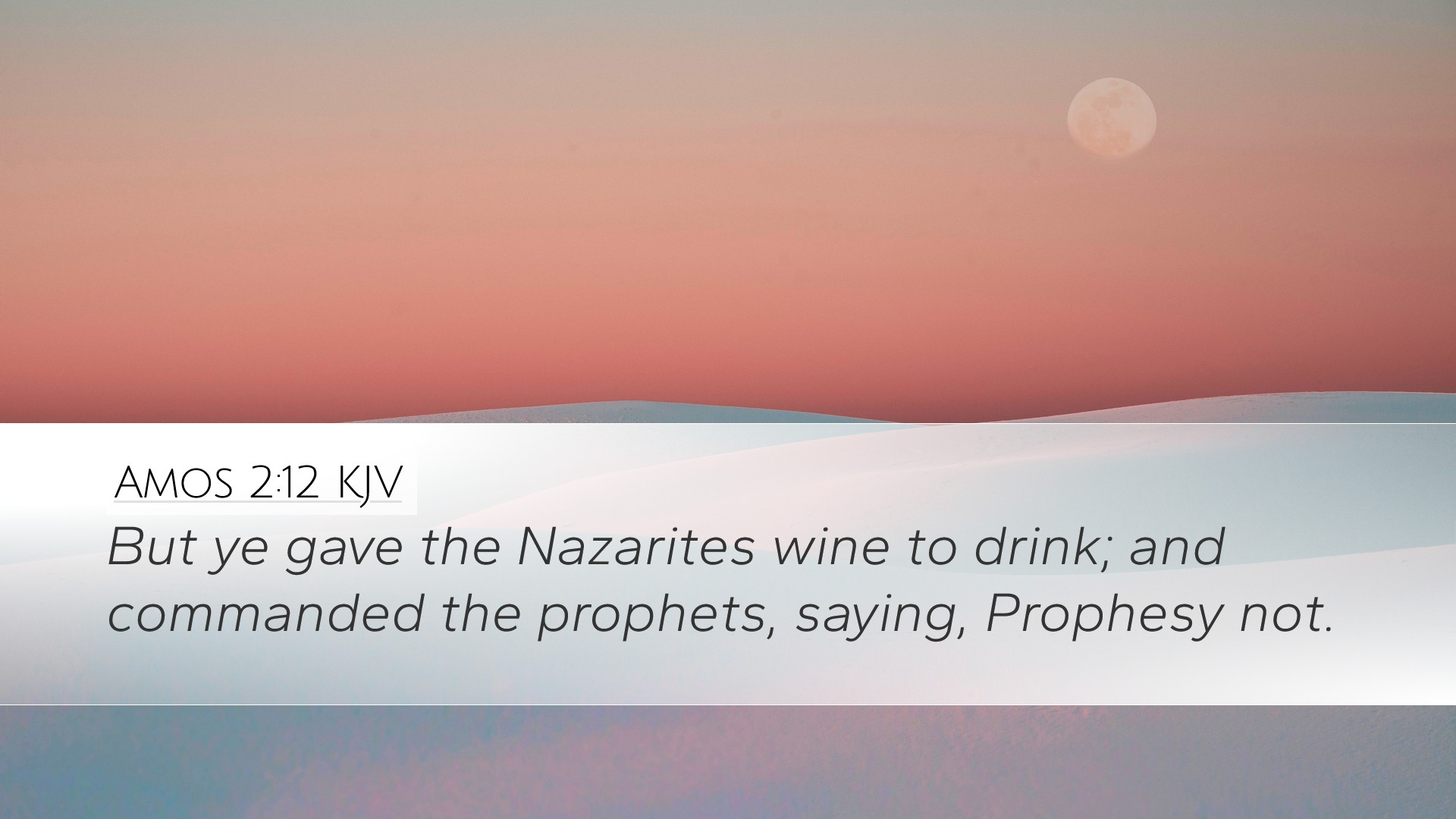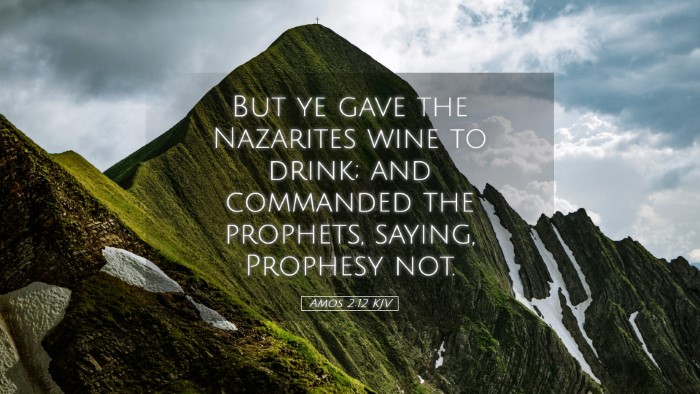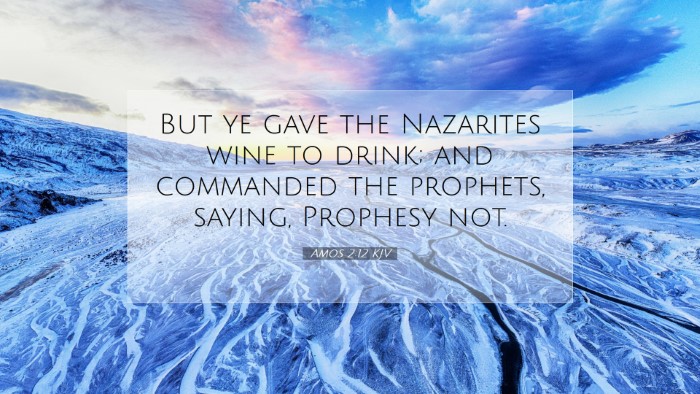Old Testament
Genesis Exodus Leviticus Numbers Deuteronomy Joshua Judges Ruth 1 Samuel 2 Samuel 1 Kings 2 Kings 1 Chronicles 2 Chronicles Ezra Nehemiah Esther Job Psalms Proverbs Ecclesiastes Song of Solomon Isaiah Jeremiah Lamentations Ezekiel Daniel Hosea Joel Amos Obadiah Jonah Micah Nahum Habakkuk Zephaniah Haggai Zechariah MalachiAmos 2:12
Amos 2:12 KJV
But ye gave the Nazarites wine to drink; and commanded the prophets, saying, Prophesy not.
Amos 2:12 Bible Commentary
Amos 2:12 Commentary
Verse Text: "But ye gave the Nazarites wine to drink; and commanded the prophets, saying, Prophesy not."
Overview
The verse Amos 2:12 addresses the moral and spiritual failures of Israel, particularly highlighting their mistreatment of the Nazarites and prophets. The context underlines a significant transgression against the holy and the prophetic voice in Israel. This commentary draws upon various public domain texts, providing a comprehensive analysis suitable for pastors, students, theologians, and Bible scholars.
Historical Context
Background of Amos: Amos, a shepherd from Tekoa, prophesied during a period of economic prosperity in the Northern Kingdom of Israel. However, this prosperity was coupled with social injustice and moral decay, leading to divine judgment.
The Nazarites: The Nazarites held a special status in Israelite society, having taken a vow of separation unto the Lord, which included abstaining from wine and strong drink (Numbers 6:3). Their vow symbolized dedication to God, and to force them to drink wine was an affront to God and His ways.
Interpretative Insights
Here, we delve deeper into the implications of the actions described in Amos 2:12. Various commentaries shed light on the significance of these two groups—the Nazarites and prophets.
-
Matthew Henry:
Henry remarks that the violation of the Nazarite vow signifies the broader rebellion against God's commandments. He emphasizes that by coercing the Nazarites to partake in wine, the Israelites demonstrated a blatant disregard for holiness and divine authority, leading to their own downfall.
-
Albert Barnes:
Barnes interprets this verse as a clear indication of the moral corruption of Israel. He notes that the command to the prophets not to prophesy reflects the people's desire for a false sense of security, rejecting the truths that God was speaking through His chosen messengers.
-
Adam Clarke:
According to Clarke, the actions described in this verse reveal the true state of Israel's heart. Their opposition to the prophetic ministry shows their unwillingness to hear God's warnings, resulting in a society that is spiritually deafened and thriving in sin.
Theological Implications
Spiritual Rebellion: The demand for the Nazarites to consume wine and for prophets to cease prophesying illustrates a profound spiritual rebellion. The people sought to silence voices that called for repentance while indulging in practices that were contrary to God's will.
The Role of Prophets: Prophets played a crucial role in Israel's spiritual health, serving as intermediaries between God and His people. The command to prevent them from speaking represents a dangerous trend of dismissing divine guidance in favor of human desires and comfort.
Lessons for Today
The message of Amos 2:12 resonates with contemporary audiences, particularly in the following ways:
- Pastors and church leaders must be vigilant against silencing voices of truth within the congregations, even when they challenge prevailing norms.
- Believers are called to uphold a standard of holiness, honoring commitments made to God, much like the Nazarites upheld their vows.
- The challenge of prioritizing divine commandments over societal pressures is relevant, as Christians navigate a culture that often contradicts biblical values.
Conclusion
Amos 2:12 serves as a timeless reminder of the consequences of rebellion against God. The call for repentance remains vital as it warns against complacency and the desire to suppress uncomfortable truths. As we study this verse alongside the insights of revered commentators, we are encouraged to listen to God's voice and live according to His standards only, reflecting on the serious implications of disobedience within our own contexts.


